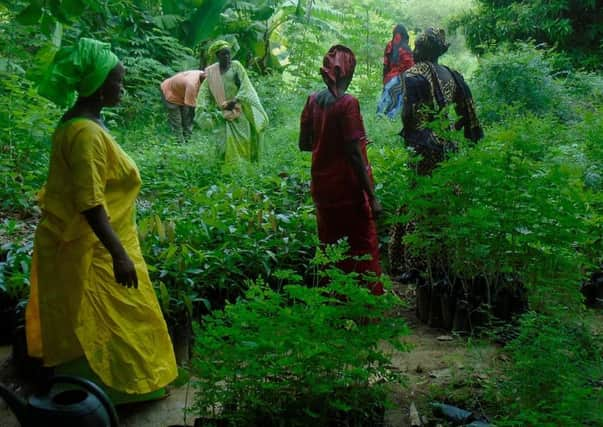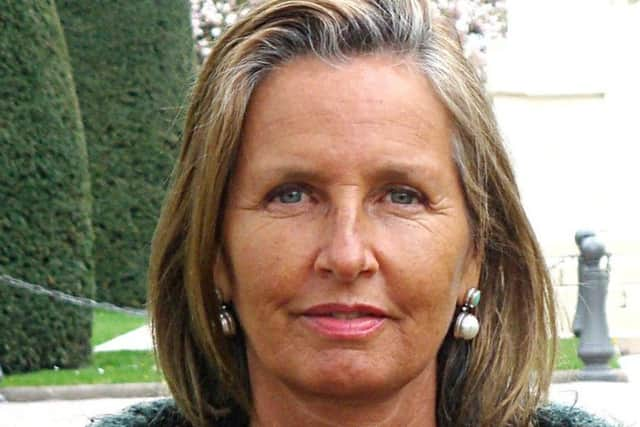May East: Transformation can be achieved without huge investment, intervention or tech


The central question those of us focused on whole-systems design is how to unlock the potential of those women in traditional communities to adapt to the direct and indirect impacts of climate change, while empowering them to support the regeneration of their communities and the natural environment. We define empowerment as a social process that promotes participation of women in gaining control over their lives, not to achieve power over others, but rather power to act with other members of the community to effect change.
Our sustainability education projects bring together women, particularly those at the edge of decision-making, to reflect on the problems facing their community and then test out a number of agricultural “scenarios” for the adaptation and regeneration of their natural assets.
Advertisement
Hide AdAdvertisement
Hide AdTheir adaptive capacity is enhanced by fostering their ability to learn about climate change and cope with and adapt to change. Utilising permaculture and agro-forestry approaches, we promote the concept of ‘conscious design’ and the maintenance of agriculturally productive ecosystems. Women are encouraged to adopt components of sustainable food production most relevant to their own setting, including mixed cropping, nitrogen fixation, bio-fertiliser preparation and seed-bank development.


During a three-year programme in Podor, northern Senegal, women were empowered to lead 1,866 farmers in adapting to regenerative agriculture, transforming over 21 hectares made barren by climate change and industrial agriculture trends, into rich, productive fields. By the end of the project, 100 per cent of villagers were using natural compost, 93 per cent had increased food production and 91 per cent reported improved financial security. Most significantly, the role of women had dramatically improved.
Our four-year Scottish Government-funded Bangladesh programme, in partnership with Bangladesh Association for Sustainable Development, empowered women from 64 communities in Bagerhat and Khulna districts to lead 3,000 community members in improving climate change resilience, setting up 39 cooperatives to sell surplus produce, opening the area’s first organic shop, and increasing household income by 23 per cent. Female participants, including members from the widely maligned Dalit and brothel communities transformed from marginalised victims to dynamic change agents, leading their community towards regenerative lifestyles. Key outcomes included the establishment of 64 self-help groups, 12 organic gardens, six horticulture sites, nine vermiculture sites, nine canal fisheries, three animal husbandries and 98 climate-change adapted houses.
Our two and a half year programme in Odisha, eastern India, funded by the Scottish Government and supported by the Women’s Confederation Orissa Nari Samaj and THREAD ecovillage, empowered overworked tribal women and girls, who combine heavy agricultural labour with their domestic duties, to lead their communities to develop more climate resilient livelihoods. With 66.2 per cent of the population living below the poverty line, local women led 750 households in adopting climate-adaptive agricultural and agroecological approaches and supplement their earnings by selling surplus produce.
Over the duration of these projects, women acquired the practical skills to break the cycle of food insecurity. Furthermore, they strengthened their leadership and communication skills, improved their status, and helped facilitate greater social cohesion, while bringing back life and productivity to the land upon which they and their wider communities depend.
These various programmes have a common thread – they are designed to promote a paradigm shift whereby vulnerable women facing climate change become pioneers of change, thriving within their territories. Through community participation women develop new certainties in their ability to influence their personal and social spheres.
In this way, they become the champions of a regenerative movement, increasing their food security and livelihoods, repositioning themselves in their communities and transforming their local ecosystem. This in turn makes their communities more resilient.
Our community-centred approach to social rebuilding, regenerative agriculture and social enterprise, led by community women, has such transformational results that climate affected communities find it relatively straightforward to make this leap, without the need for huge investment, high spec technology or government intervention. Their downward spiral into poverty and hunger is literally reversed, and their futures more encouraging.
Advertisement
Hide AdAdvertisement
Hide AdWhile world leaders consider their next steps in the implementation of the Paris accord, we join in solidarity with the women from the Global South who, in the face of looming crisis, are tackling climate change in their own dignified manner.
May East, Gaia Education CEO